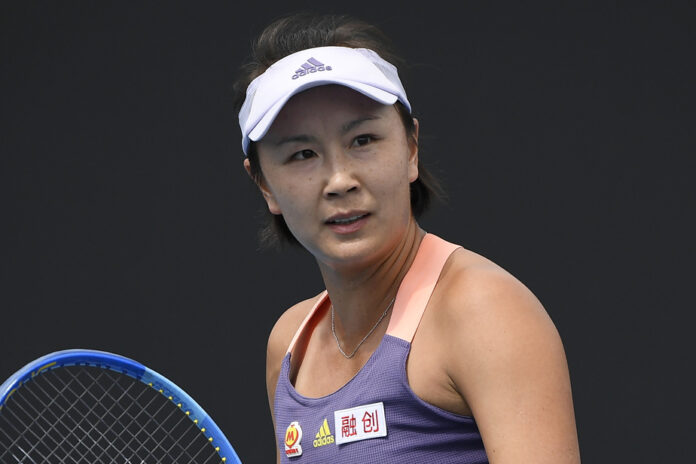(Canton) This is the culmination of an about-face: the WTA returns to China this Monday, 21 months after having loudly announced the “suspension” of Chinese tournaments to defend tennis player Peng Shuai.
The WTA tournament in Guangzhou (September 18-23), the southern metropolis of the country, will be the first since pre-COVID-19 in 2019. No top 20 stars are expected to be present, but the event is sure to attract looks.
Organizer of the women’s circuit, the WTA announced this “suspension” in December 2021 and demanded guarantees from Beijing on the fate of the Chinese Peng Shuai, who had accused a former senior manager of “forced” sexual intercourse.
It is “more important than business”, insisted Steve Simon, the president of the WTA, saying he was ready to sacrifice the enormous economic interests linked to the Chinese market.
“A total capitulation”, for sports analyst Mark Dreyer, based in China. “Because it was obvious to anyone who knows China that they were not going to conduct a free and impartial investigation into the sexual assault allegations,” he explains.
“It would almost have been better” for the WTA in terms of image “if it had not adopted this position,” underlines Mr. Dreyer, author of Sporting Superpower, a book on the sporting ambitions of the Asian giant.
The suspension was very symbolic anyway, the tournaments being at the time… already suspended in China due to anti-COVID-19 health measures. International competitions only really resumed there in 2023.
In a long message published on the internet in November 2021, Peng Shuai, ex-N. 1 in the world in doubles, now aged 37, recounted her thwarted romantic relationship with a former Chinese prime minister, Zhang Gaoli, 39 years her senior and married.
She indicated in a sentence that she felt “forced”, one day, to accept sexual intercourse.
The player later claimed that the term “sexual assault” used by the WTA to describe the case was incorrect and that “everything is fine.”
“The choice of return is economical,” declares Lionel Maltese, lecturer at the University of Aix-Marseille, organizer of the Marseille ATP tournament and former member of the executive committee of the French tennis federation (FFT).
“The revenues generated in China have a strong impact on the financing and income of all players, because the tournaments have significant prizes and guarantees and the WTA returns the added value generated to the players,” he summarizes.
Before COVID-19, the WTA held 10 tournaments there each year (out of more than 60), with a total of $30 million.
Among them was notably its end-of-season Masters, in Shenzhen (south), now abandoned and which offered record prizes for the women’s circuit.
China is all the more important for the WTA as five Chinese women appear in the world top 100 – notably Zheng Qinwen (22nd), 20 years old, recent quarter-finalist at the United States Open, or Wang Xinyu, 21 years old and titled in women’s doubles this year at Roland-Garros.
Good performances which stimulate the enthusiasm for tennis in China and therefore the economic potential of the market.
“When you have enough big names, the money and the tournaments flow,” Dreyer points out.
The headliners in Canton should be the Polish Magda Linette (24th in the world) and the Romanian Sorana Cirstea (26th).
Will the players bring up the Peng Shuai affair?
“There is no leadership among the players on ethical issues,” believes Lionel Maltese.
“Rare athletes take a stand. The years of Bill Russell in basketball or Mohamed Ali in boxing or even Arthur Ashe in tennis are distant. »
Frenchwoman Alizé Cornet (99th in the world), however, announced this week that she would not participate in the autumn tournaments in China in order to be “faithful” to her “convictions”.
A visit from Peng Shuai, retiree, is not excluded. Since the affair broke out, it has appeared, in a visibly orchestrated manner, during other sporting competitions, notably the Beijing Winter Olympics in February 2022.















